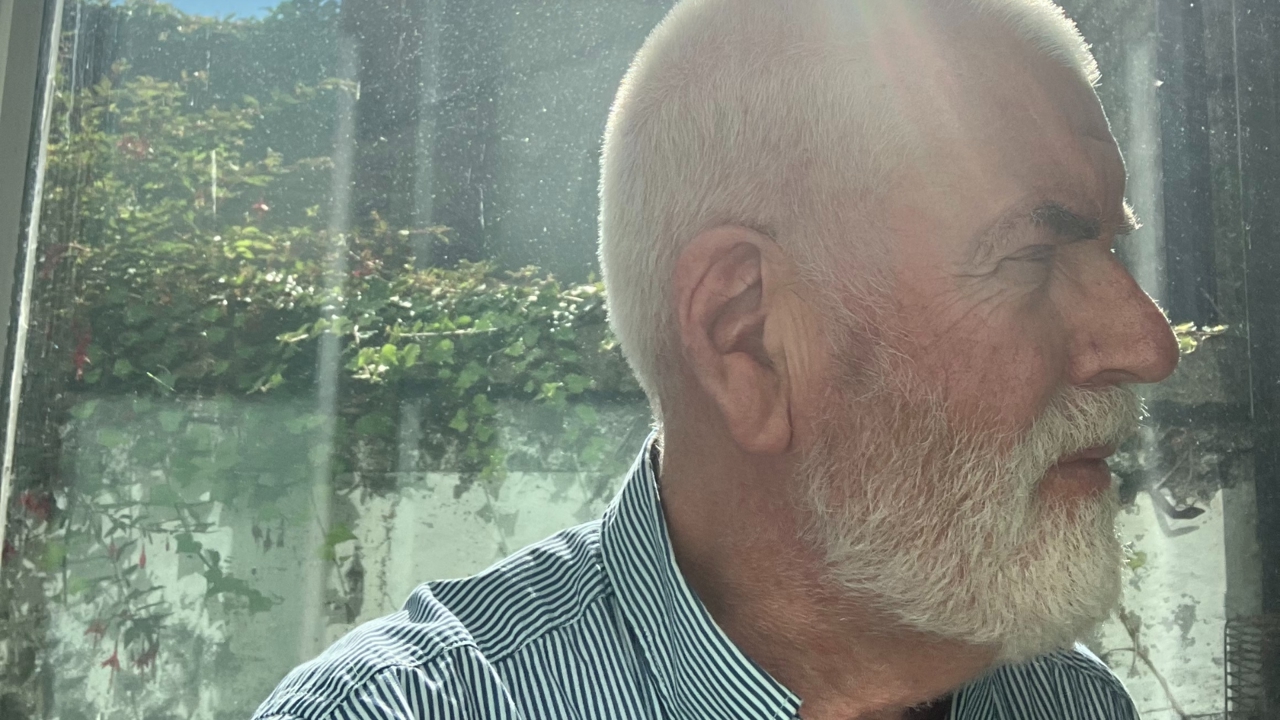Events and Tickets
Spotlight: Gerald Barry

Don’t be misled by Gerald Barry’s seemingly throwaway reason – ‘It seemed like a good thing to do’ – for setting Oscar Wilde’s Salome as an opera. There is considerably more to it than mere caprice.
Barry and Wilde have history together. Barry’s anarchic take on The Importance of Being Earnest, hailed by The Stage as ‘a virtuoso explosion from beginning to end’, heralded a meeting of kindred minds and spirits.
‘I feel very close to Wilde,’ Barry admits. ‘There is a craziness in him, an ecstatic kind of vertigo, light-headedness, dizziness. He reminds me of characters in Strindberg’s plays who say shocking, violent things, except Wilde does it flamboyantly.’
Since his first opera, 1990’s The Intelligence Park, the County Clare-born Barry has emerged as Ireland’s leading composer for the stage, his work widely seen – and acclaimed – in the UK, Europe and America.
Salome, his seventh opera, follows Alice’s Adventures Under Ground, a freewheeling take on Lewis Carroll’s classic book, a concert performance of which took place under New Music Dublin’s aegis in 2017.
‘Wilde shares the same sense of unreality masquerading as reality as Carroll; they have the same surreal attitude, a kind of fantastic, subversive, murderous quality. There’s a madness in them that I feel very at home with.’
Tellingly, all three operas set Barry’s own libretto. Typically, none are straight, line-for-line adaptations. That’s certainly true of Salome, which received its world premiere in Germany in 2024.
Barry describes it as ‘an opera of voyeurism, the moon, french, God, punishment of sin, misunderstanding, sex, the metronome, suicide, hysteria, hunger, blood, typing, speaking correctly, sterility, The Blue Danube, the wind, fever, art, Wilde, dreaming, beheading, Frankenstein, kissing’.
Something, you might say, for everyone. And Barry’s rationale for such pinball machine collisions of borrowings, thoughts and emotions?
‘If you took a picture of my brain while I was composing Salome, that’s what it would look like. I go where the mood takes me.’
Musically, Barry remembers Salome’s composition as ‘a stream of consciousness feeling my way along. I go as if I were in a dream-like state’.
Barry’s moods changing on a sixpence, Salome offers as much illumination on Wilde’s original as it takes liberties. Sung in English, French and German, it zeroes in on what Barry describes as the playwright’s ‘dark, uncaring humour’.
The result is a subversive turning inside out of its source material, such that only Salome retains her own name, other characters described as types, and the notorious femme fatale no longer a seductive dancer but a typist whose dexterity transcribing Wilde’s letter from Reading Gaol, De Profundis, excites Herod’s (Barry’s The King’s) desire instead of the notorious ‘Dance of the Seven Veils’, a moment captured in Richard Strauss’s operatic setting. It’s a signature scene as mischievous as it is macabre.
‘I never set out to be funny – or controversial. Or to be theatrical. I take my cue from my nervous system. It’s almost like attending a seance where you try to contact the “other side”. It’s like being a child again and having that extraordinary window into the fantastic. I try to keep that open as much as possible. It’s very easy to forget what innocence is, and very hard to keep it alive in you.’
The Irish premiere of Salome sees the world premiere cast, including Irish soprano Amy Ní Fhearraigh as The Queen, reassemble in Dublin for a concert performance with National Symphony Orchestra Ireland as part of New Music Dublin – something Barry is clearly happy about.
‘They’re a great cast who really understood what was being asked of them and brought something extra to it. Concert performances are often more powerful than stagings, allowing audiences’ imaginations to fly where they want.’
